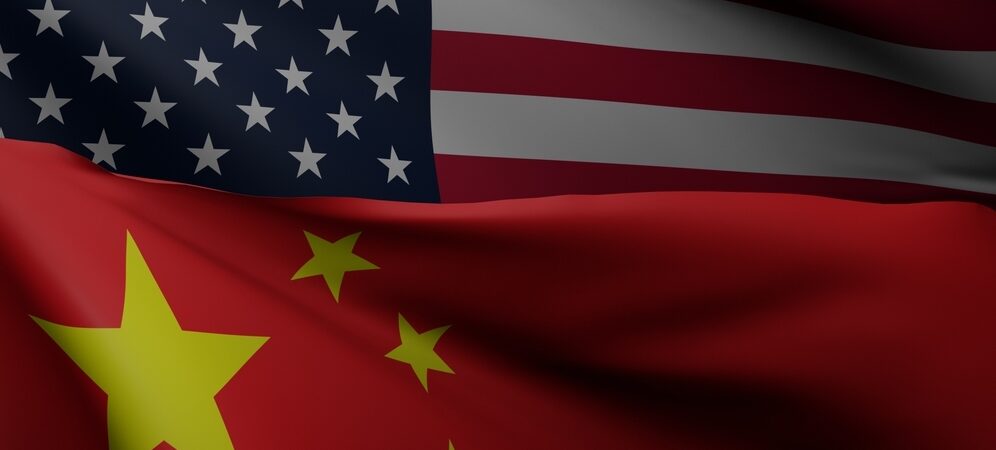For a generation, the United States bet that robust economic engagement would lead the Chinese Communist Party (CCP) to open its economy and financial markets and in turn to liberalize its political system and abide by the rule of law. Those reforms did not occur.
Since its accession to the World Trade Organization in 2001, the CCP has pursued a multidecade campaign of economic aggression against the United States and its allies in the name of strategically decoupling the People’s Republic of China (PRC) from the global economy, making the PRC less dependent on the United States in critical sectors, while making the United States more dependent on the PRC. In response, the United States must now chart a new path that puts its national security, economic security, and values at the core of the U.S.-PRC relationship.
The House Select Committee on the Strategic Competition between the United States and the Chinese Communist Party (Select Committee) has studied the PRC’s pattern of aggression and economic manipulation and recommends the following strategy for economic and technological competition with the PRC.
The strategy that follows is guided by three pillars:
First, the United States must reset the terms of our economic relationship with the PRC and recognize the serious risks of economically relying on a strategic competitor that harnesses the power of the Party-State to compete economically. While economic exchange with the PRC will continue, the United States government and the private sector can no longer ignore the systemic risks associated with doing business in the PRC or allow companies’ pursuit of profit in the PRC to come at the expense of U.S. national security and economic resilience. For over two decades, the U.S. government and businesses have sought access to the PRC as a market for consumer goods, a source of low-cost production, and a recipient of U.S. investment. In that time, the PRC has failed to live up to its trade promises, tightly controlled access to its markets, stolen hundreds of billions of dollars a year in technology and IP, and employed subsidies and unfair trade practices to squeeze out American competitors. These are not merely an assortment of separate moves made by individual actors but a feature of Beijing’s long-term strategy to harness the scale of its domestic market to achieve global dominance for PRC firms in critical technology and products and to make foreign countries, including the United States, dependent upon the PRC and subject to its coercion.
Second, the United States must immediately stem the flow of U.S. technology and capital that is fueling the PRC’s military modernization and human rights abuses. General Secretary Xi has made plain his intent to “resolutely win the battle of key and core technologies” and build the People’s Liberation Army (PLA) into a “great wall of steel.” At present, U.S. capital, technology, and expertise aid that effort. They support the PLA’s modernization, the CCP’s predatory technological goals, and genocide. The United States must change course. To quote Dr. Eric Schmidt’s remarks at the Select Committee’s hearing, “Leveling the Playing Field,” “it’s never too late to stop digging our own grave.”
Third, the United States must invest in technological leadership and build collective economic resilience in concert with its allies. The best defense against the CCP’s predatory economic practices will fail if not paired with a proactive strategy to invest in America and increase economic and technological collaboration with likeminded partners. The United States must bolster its unique advantages in technological development by funding research, incentivizing innovation, and attracting global talent in critical areas. In addition, the United States needs to invest in workers, who must remain competitive for jobs of the future, including by helping workers acquire skills-based training and adapt to technological transitions.
Consecutive U.S. presidential administrations have sounded the alarm on growing U.S. dependence on the PRC for critical goods, including rare earth minerals, components and chemicals used in U.S. weapon systems, and pharmaceutical products and precursors. The PRC has already demonstrated its willingness to weaponize these dependencies to coerce the United States and its allies and seek to constrain our policy options. The PRC’s growing leadership in key critical and emerging technologies vital to long-term competitiveness heightens the risks.
The strategy presented here includes sets of findings and recommendations for each pillar. Taken together, they would level the economic playing field, reduce the PRC’s hold on U.S. and allied critical supply chains, and invest in a future of continued economic and technological leadership for the United States and its likeminded allies and partners.
reset-prevent-build-scc-report
To read the full committee report, click here

